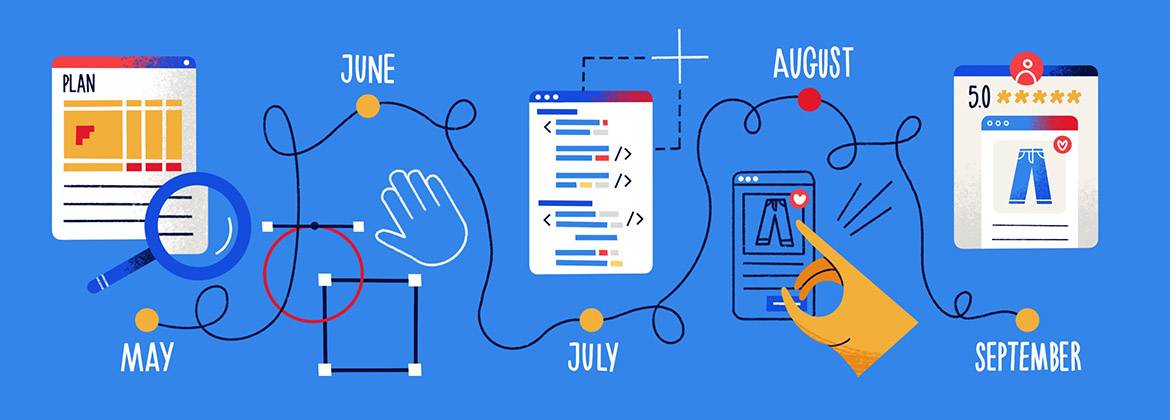
As a new mom, one of the most exciting things you’ll experience is watching your baby grow and develop. Every milestone is a cause for celebration, from rolling over to taking those first steps. But have you ever wondered how long it takes for a baby to develop? In this article, we’ll explore the different stages of baby development and answer some common questions about what you can expect along the way.
Table of Contents
Stage 1: The First Two Months
When your baby is born, they are already equipped with a range of abilities, such as the ability to suck and swallow, grasp objects, and even recognize your voice. But during the first two months of life, your baby will undergo a rapid period of growth and development. They will start to gain weight and grow taller, and their motor skills will improve. During this stage, your baby will also start to communicate with you through coos and cries.
Stage 2: Three to Six Months
Between three and six months of age, your baby will become even more active and alert. They will start to roll over, sit up, and grab at objects. You may notice that your baby is starting to become more interested in their surroundings and is fascinated by new sights and sounds. They may also start to develop a sense of humor and will love to play games like peek-a-boo.
Stage 3: Seven to Twelve Months
During the third stage of development, your baby will become more mobile as they learn to crawl, pull themselves up, and maybe even take their first steps. They will also start to understand simple instructions and may even say their first words. You’ll notice that your baby is becoming more independent and will want to explore their environment on their own.
Stage 4: One to Two Years
Between one and two years of age, your baby will continue to grow and develop at a rapid pace. They will become more skilled at walking and running, and may even start to climb stairs. You’ll also notice that your baby is becoming more social and will enjoy playing with other children. They will start to form strong attachments to their favorite toys and may even have a favorite blanket or stuffed animal.
Stage 5: Two to Three Years
During the final stage of baby development, your child will become even more independent and will start to assert their own personality. They will be able to communicate more effectively and will enjoy playing with other children. You may notice that your child is becoming more interested in books, music, and other activities that require more advanced cognitive skills.
So, how long does it take for a baby to develop? The answer is that it varies from child to child. Some babies may reach certain milestones earlier or later than others, and that’s perfectly normal. As a parent, your role is to provide a nurturing environment that encourages your child to explore and learn at their own pace.
Frequently Asked Questions
Q: What can I do to encourage my baby’s development?
A: There are many things you can do to help your baby develop, such as providing plenty of opportunities for play and exploration, reading to them, and talking to them often.
Q: What should I do if I’m concerned about my baby’s development?
A: If you have concerns about your baby’s development, talk to your pediatrician. They can help you determine if there’s a cause for concern and recommend any necessary interventions.
Q: What are some warning signs that my baby may not be developing normally?
A: Warning signs may include a lack of interest in their surroundings, delays in reaching milestones, and a lack of interaction with others.
Q: How can I make sure my baby is getting enough stimulation?
A: Provide plenty of opportunities for play and exploration, read to your baby, and talk to them often. You can also try introducing new toys and experiences to keep things interesting.
Q: Is it normal for my baby to have trouble sleeping during certain stages of development?
A: Yes, it’s common for babies to experience sleep disruptions during periods of rapid growth and development. If you’re concerned, talk to your pediatrician.
In conclusion, every baby develops at their own pace, but there are certain milestones you can expect along the way. By providing a nurturing environment that encourages exploration and learning, you can help your baby reach their full potential.
